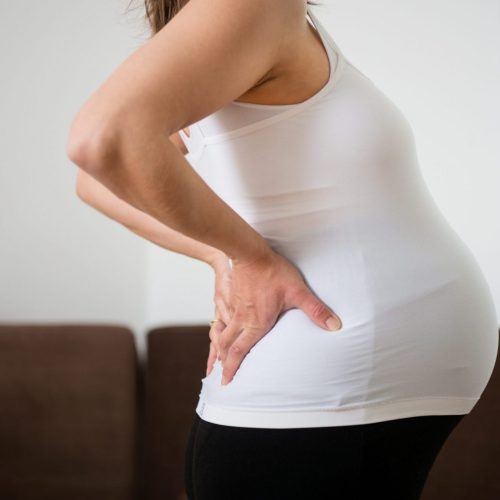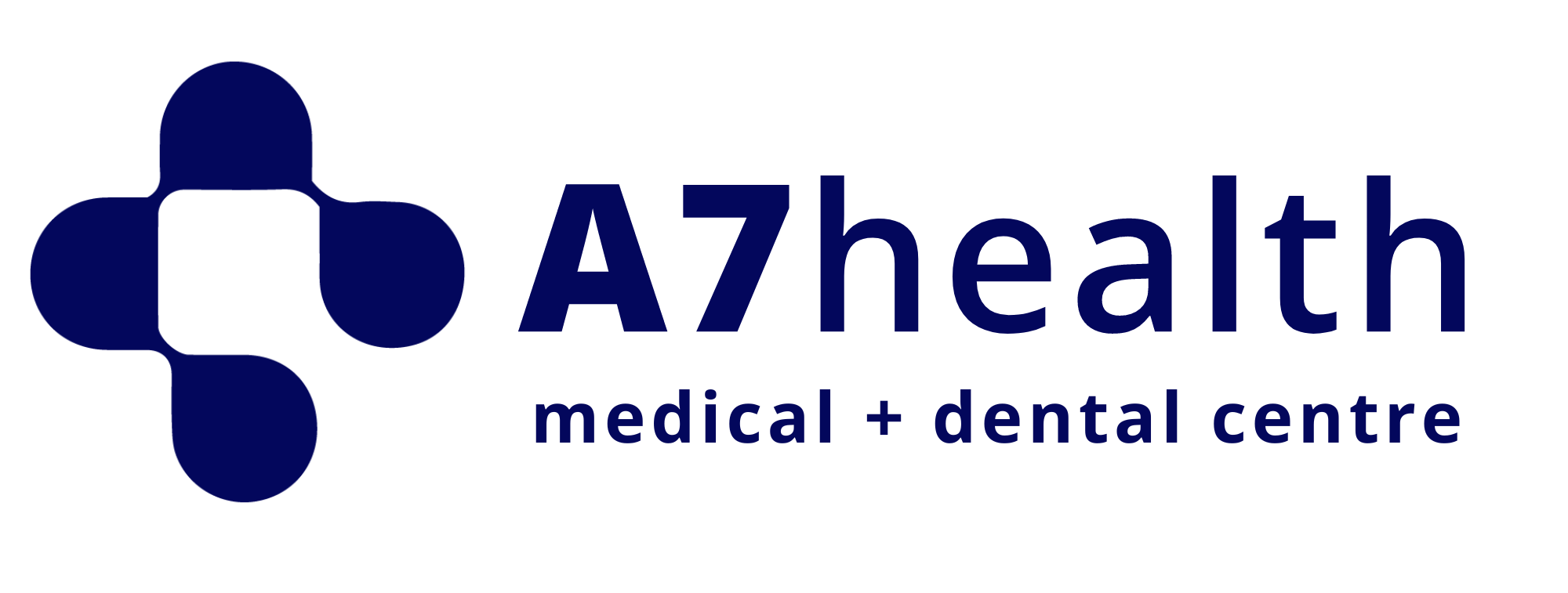Postpartum Back Pain
Postpartum back pain is pain in your back that lingers even after you’ve given birth to your baby.
What causes postpartum back pain?
There are several reasons that you may be experiencing postpartum back pain. Pain can be managed by treatment at A7 Health. Some causes of back pain after pregnancy may include:
Shifting center of gravity – During pregnancy, your body’s center of gravity shifts forward and your pelvis naturally begins to roll forward and tilt forward, causing your lower back to arch.
Growing breasts – Heavier beasts can change the curve of your spine and cause your shoulders to droop.

Hormone changes – During pregnancy, your body produces hormones to relax the muscles, joints and ligaments. The amount of hormones remains high for a while after birth (about three months, more if you are breastfeeding) and your joints, ligaments and muscles are not yet strong and tight enough to support your core.
Long/difficult labor and C-Section – Some muscles and joints may have been overexerted during labor, leading to back pain after birth. Mothers who have had a C-section may have adhesions and scar tissue that can cause lower back and pelvic pain. See C-section recovery tips.
Baby weight and weight-gain – Excess weight-gained during pregnancy puts extra stress on your joints and muscles. Your knees, hips, lower abdominal muscles and lower back were especially stressed.
Weaken abdominal muscles and Diastasis recti – During pregnancy, the growing baby causes weakened and stretched abdominal muscles, resulting in altered posture and a weaker core. Diastasis recti, or abdominal separation, weakens the abdominal muscles and your body may overcompensate using your back muscles.
Pelvic floor dysfunction – The supporting muscles and tissues of the pelvis may weaken during pregnancy and become strained during childbirth. Weakening of the pelvic floor can cause pain in other areas.
Poor posture during daily activities – Poor posture is one of the reasons why many new mothers still suffer from back pain a year after pregnancy.
Here are a few activities where you should pay attention to your posture:
- Poor sitting positions during breastfeeding sessions
- Bending over to pick your baby up
- Picking up toys, changing diapers or getting the stroller in and out of the car
- Holding and rocking the baby on your hip or in your arms
- Where on your body the baby’s weight is supported while using child carriers
Treatment for postpartum back pain
- Exercise – If you exercised before pregnancy, you should continue to do pregnancy-safe exercises throughout your pregnancy. If you are unsure of what exercises to do or if you have not exercised before, with your doctor’s permission and under the guidance of an A7 Health clinician, you should begin exercising during pregnancy and soon after delivery. Join the A7 Health pre-natal exercise classes for all 3 trimesters.
- Baby weight – Try to get back down to your pre-baby weight within 2-3 months after delivery.
- Maintain good posture daily – When lifting or placing your baby on the floor, bend at the knees (not at the waist), squat, tighten the abdominal muscles and lift with the leg muscles.
- Carry your child properly – consider using a “back-pack” to carry the baby while walking and try not to carry your child on your hip as this can overload the back muscles.
Treatment at A7 Health for Postpartum Back Pain:
Get Physiotherapy for Back Pain – Book an appointment with a Physiotherapist at A7 Health to manage your pain. Some of the treatments include:
- Heat therapy.
- Lower back mobility exercises.
- Massage for pain relief.
- Mobilisations on any stiff joints such as your hips, lumbar spine joints or the sacroiliac joint (SIJ).
- Pelvic floor strengthening exercises.
- Strengthening exercises for your abdominal muscles.
Join an exercise class (with a Biokineticist) – Moderate exercise, such as walking, has been shown to help relieve back pain during pregnancy. Stretching can help relieve sore muscles. Join an exercise class led by an A7 Health Biokineticist who will teach you exercises that will strengthen and relax muscles and help you to reduce pain during your pregnancy. These exercises will also help you with delivery and recovery after you give birth.
